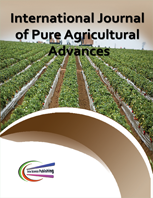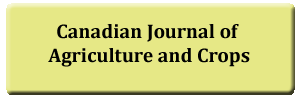The Role of Government Institutions in Supporting Smallholder Farmers’ Adaptation to Climate Change in Gombe State, Nigeria
DOI:
https://doi.org/10.20448/813.31.1.13Keywords:
Agricultural communities, Climate change, Government institutions, Smallholder farmers and subsistence agriculture.Abstract
Climate change is now an everyday reality, with far reaching consequences, especially for poor agricultural communities, who suffer the most diverse effects of climate change. Over past few years, efforts have been diverted from reaction, to pre-emptive, in a bid to ensure that the most vulnerable can adapt to the challenges of climate change. Impacts of climate change are felt more by poor communities who depend on subsistence agriculture for survival. In order to adapt to climate change, there is need for this poor rural communities to be supported in various ways, by both government and non-government entities. This study investigates the role of government institutions in supporting climate change adaptation among smallholder farmers in Gombe State, Nigeria. Primary data was generated using structured questionnaire. This was administered to 240 randomly selected members of the farming communities, local leaders and members of government institutions working on environmental management in the State. Data was analyzed using both descriptive and factor analysis methods. Results show that a number of factors are responsible for determining the government support towards adaptation in both crop and animal production among smallholder farmers. The study findings revealed different challenges encountered by crop farmers, livestock farmers and government institutions in trying to implement mechanisms of adaptation to climate change in Gombe State, Nigeria. The study recommended that government should engage rural smallholder farmers, non-governmental organizations and civil society in this effort, and that it should encourage local mechanisms in order to ensure sustainability of the adaptation efforts.


